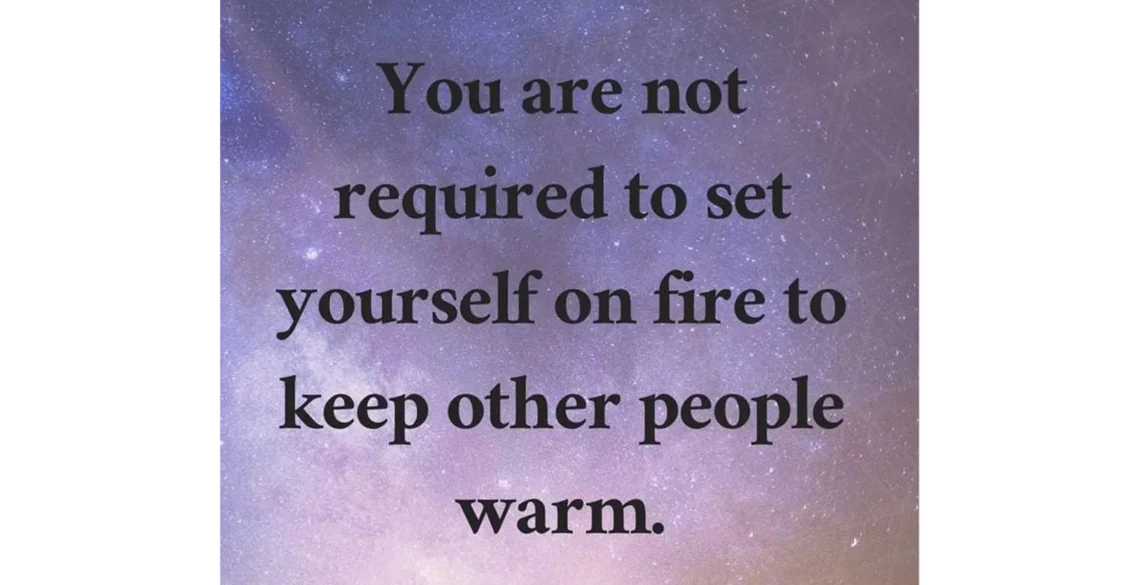People-Pleasing as a Trauma Response
Have you ever found yourself saying “yes” when every part of you wanted to say “no”? Do you feel uneasy when someone is upset with you, even when you’ve done nothing wrong? Or do you constantly go out of your way to make others happy—only to end up feeling drained, invisible, or resentful afterward?
If this sounds familiar, you may be dealing with something much deeper than simply having a “nice personality.”
You could be experiencing people-pleasing as a trauma response.
What Is People-Pleasing?
People-pleasing is a behavioral pattern where you prioritize the needs, emotions, and comfort of others over your own—often at the expense of your well-being. It may look like kindness on the surface, but at its core, it’s often about survival.
At first glance, people-pleasers seem caring, empathetic, and helpful. But beneath that compassion lies an unconscious fear—the fear of rejection, conflict, or abandonment. Many people who people-please have learned that their safety and belonging depend on keeping others happy.
As I often tell my clients: people-pleasing is not who you are; it’s what you learned to do to stay safe.
The Psychology Behind It
To truly understand people-pleasing, we need to look at the nervous system and early conditioning. When children grow up in environments marked by emotional neglect, criticism, or unpredictability, their brains adapt to survive.
The human brain is wired for safety, and children are completely dependent on their caregivers. When love or approval is conditional—phrases like “I’m proud of you only when you behave” or “Stop crying or I’ll ignore you”—the child learns to suppress their needs and seek approval as a way to feel secure.
In trauma psychology, this is called the fawn response, one of the four common trauma reactions:
-
Fight – Confront the threat
-
Flight – Escape the threat
-
Freeze – Shut down or dissociate
-
Fawn – Appease the threat to avoid harm
The fawn response is where people-pleasing is born. It’s the mind’s way of saying, “If I can keep everyone happy, I’ll be safe.”
Early Roots: Where It Begins
People-pleasing often takes root in childhood homes where:
-
Love and approval were earned through good behavior.
-
Emotional expression was considered “too much” or “disrespectful.”
-
Caregivers were unpredictable, critical, or emotionally distant.
-
The child was made responsible for keeping peace (“Don’t make your mother angry.”).
In such environments, children quickly learn that their worth is tied to compliance and self-sacrifice. Over time, this belief becomes ingrained:
“If others are okay, then I’m okay.”
This unconscious belief then carries into adulthood, influencing relationships, work, and even one’s sense of identity.

The Cost of Constant Approval
While people-pleasing might appear generous, it often comes with significant emotional costs.
-
Chronic Anxiety – Constantly scanning others’ moods keeps the nervous system in overdrive, fearing disapproval.
-
Loss of Identity – Over-adapting to others’ needs leads to losing touch with one’s own desires and beliefs.
-
Emotional Burnout – Giving endlessly without receiving creates resentment and deep fatigue.
-
Unhealthy Relationships – People-pleasers often attract those who exploit their kindness, reinforcing cycles of neglect.
-
Suppressed Anger – Unexpressed emotions manifest as guilt, irritability, or even physical symptoms like headaches and anxiety.
View this post on Instagram
The Inner Dialogue of a People-Pleaser
Understanding the inner voice behind people-pleasing helps reveal the wound beneath.
Common internal thoughts include:
-
“If I say no, they’ll be upset.”
-
“I can handle it; I don’t want to trouble anyone.”
-
“They won’t like me if I speak up.”
-
“I’ll just stay quiet—it’s not worth the fight.”
These aren’t signs of weakness—they’re signs of survival learning. The child who once had to please others to stay safe is still running the show within the adult self.
Recognizing It Is the First Step
Awareness is the beginning of healing. Once you see the pattern, you can begin to change it.
Ask yourself gently:
-
Do I often suppress my needs to avoid conflict?
-
Do I apologize excessively, even when I’m not at fault?
-
Do I feel uncomfortable when others are upset, even if it’s unrelated to me?
-
Do I struggle to say “no” without guilt?
If you answered yes to several of these, you are not alone—and there is nothing “wrong” with you. Your nervous system is simply doing what it learned to do: seek safety through connection.
Healing from the Fawn Response
Healing people-pleasing isn’t about becoming selfish—it’s about restoring balance and learning that your needs matter too.
Here are some therapeutic steps that help:
-
Understand the Root
Reflect on where your need for approval began. Was love conditional? Recognize that what once protected you may now be limiting you. -
Reclaim Your Boundaries
Boundaries are not walls—they’re gates that determine what enters your life. Start small. Say “no” respectfully when you truly mean it. Confidence builds with each honest step. -
Reparent Yourself
Offer yourself the unconditional love and validation you once missed. Practice affirmations like:
“It’s okay to disappoint others to stay true to myself.”
“I am safe even when someone is upset with me.”
These statements help calm your nervous system and reprogram old beliefs. -
Reconnect with Your True Self
Ask yourself: What do I truly want? Spend time journaling, meditating, or simply noticing what brings you peace. Healing means rediscovering your authentic voice beneath years of adaptation. -
Seek Therapeutic Support
Trauma-informed therapy can help rewire your body’s safety responses. Techniques such as inner child work, somatic experiencing, or cognitive-behavioral therapy (CBT) can foster emotional independence and self-trust.
A Gentle Reminder
You didn’t choose to become a people-pleaser—it was a survival instinct.
Your deep care for others isn’t a flaw; it’s a gift. The goal isn’t to stop caring, but to finally include yourself in that circle of care.
Healing is learning that peace doesn’t come from being liked—it comes from being real.
Final Words
As a psychologist, I’ve witnessed countless clients transform once they realized that their over-giving wasn’t their personality—it was protection. When they began to set boundaries, they didn’t lose love; they attracted healthier, more genuine connections.
So, to every gentle soul reading this:
You are not selfish for saying no.
You are not difficult for having needs.
And you are not unlovable for being human.
You are simply learning what safety and self-worth feel like—without conditions.
That’s not rebellion.
That’s healing.
Connect with Dr. Kamakshi
Counselling Psychologist | EFT Trainer | Mental Health Blogger | Anxiety Coach
Founder – Enchanted Self Counselling Services, Kundli, Sonipat, Haryana
📞 Call: +91 9991115590
📸 Instagram: @enchanturself_widdr.kamakshi | @awakenwith_dr.kamakshi















